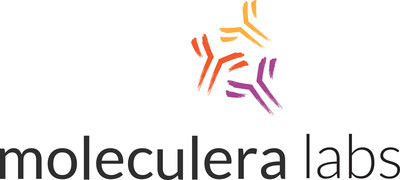COLA Accreditation Renewed For Moleculera Labs Testing Services For Childhood Autoimmune Conditions Affecting Brain And Behavior
OKLAHOMA CITY, Aug. 6, 2015 /PRNewswire/ -- Moleculera Labs, Inc., a CLIA (Clinical Laboratory Improvement Amendments) certified clinical laboratory offering testing services to aid physicians in their diagnosis of sudden onset neuropsychiatric disorders, today announced they have received renewal of their COLA (Commission on Office Laboratories Accreditation) certification. The company's testing services are licensed in 49 states, with licensure in New York State pending.

The Moleculera tests, known collectively as the Cunningham Panel, help physicians determine whether the sudden onset of certain behavioral and movement disorders in children and adolescents, including obsessive-compulsive behaviors, tics, anorexia and other psychiatric symptoms, may be due to an infection-induced autoimmune attack on the brain. PANS (pediatric autoimmune neuropsychiatric syndrome) and PANDAS (Pediatric Autoimmune Neuropsychiatric Disorder Associated with Streptococcal Infection) are defined as clinical diagnoses. However, making the correct diagnosis can be challenging, as symptoms overlap with other neuropsychiatric symptoms and can be co-morbid with other neurological disorders.
The Cunningham Panel consists of five tests that measure, in part, the level of autoantibodies directed against specific neurologic targets in the brain responsible for movement and behavior. Elevated levels of these antibodies indicate that a child's symptoms may be due to an infection-induced autoimmune response. If PANS or PANDAS is correctly diagnosed, the physician can treat the child's underlying infection and associated immune dysfunction, which often achieves a dramatic reduction or complete resolution of the neuropsychiatric symptoms.
"Since our testing facilities first gained accreditation in 2013, we have processed approximately 3,000 orders from more than 350 physicians and 14 leading hospitals and institutions across the United States," said Craig Shimasaki, Ph.D., MBA, President and Chief Executive Officer of Moleculera Labs. "We have also had growing international interest in our services, with approximately 30% of orders now coming from other countries. More and more, physicians are recognizing and understanding PANS/PANDAS as a potential underlying cause of neuropsychiatric manifestations in children. Because treatments for these illnesses differ significantly from traditional neuropsychiatric disorders and motor tics, correctly identifying PANS/PANDAS is essential to resolving a patient's condition."
About Moleculera Labs
Moleculera Labs is a privately owned company whose objective is to discover and deliver advanced testing services for children and adults suffering from treatable autoimmune neuropsychiatric disorders. The company's initial offering is the Cunningham Panel, a set of tests aimed at assisting clinicians in the diagnosis of PANDAS and PANS, conditions associated with motor tics, obsessive compulsive disorder (OCD), and sometimes Autism Spectrum Disorders (ASD), that researchers believe to be caused by a harmful autoimmune response triggered by common infections. Moleculera Labs is based at the University of Oklahoma (OU) Research Park in Oklahoma City and operates a full CLIA (Clinical Laboratory Improvement Amendment) and COLA (Commission on Laboratory Accreditation) certified clinical laboratory where it performs the Cunningham Panel for physicians and clinicians throughout the United States and globally. For more information, please visit our website at http://www.moleculera.com.
Logo - http://photos.prnewswire.com/prnh/20150702/227697LOGO
To view the original version on PR Newswire, visit:http://www.prnewswire.com/news-releases/cola-accreditation-renewed-for-moleculera-labs-testing-services-for-childhood-autoimmune-conditions-affecting-brain-and-behavior-300124687.html
SOURCE Moleculera Labs
 Help employers find you! Check out all the jobs and post your resume.
Help employers find you! Check out all the jobs and post your resume.
